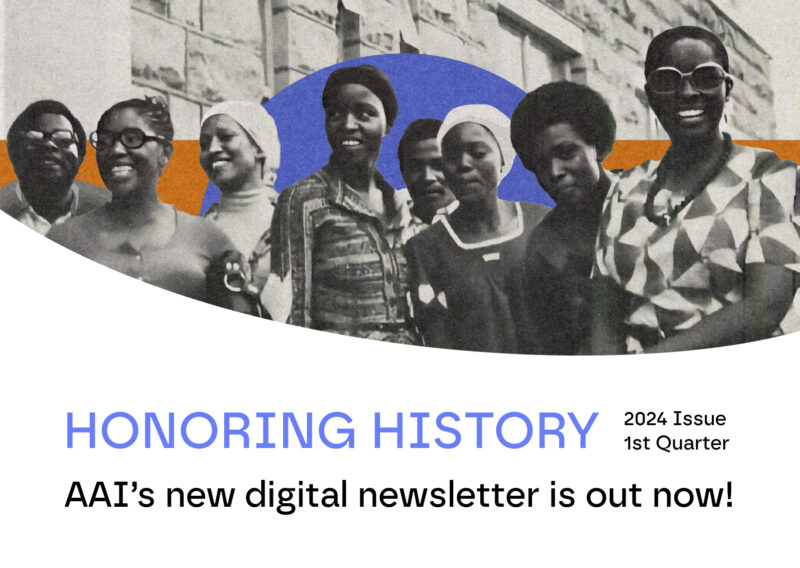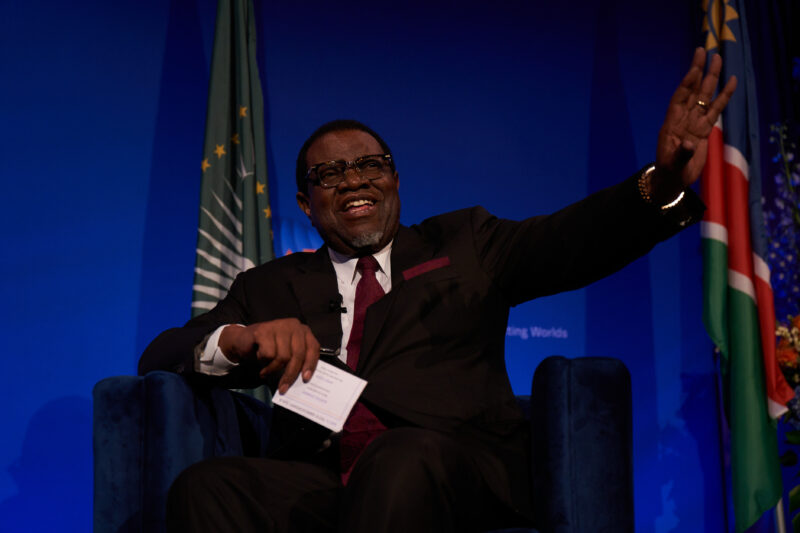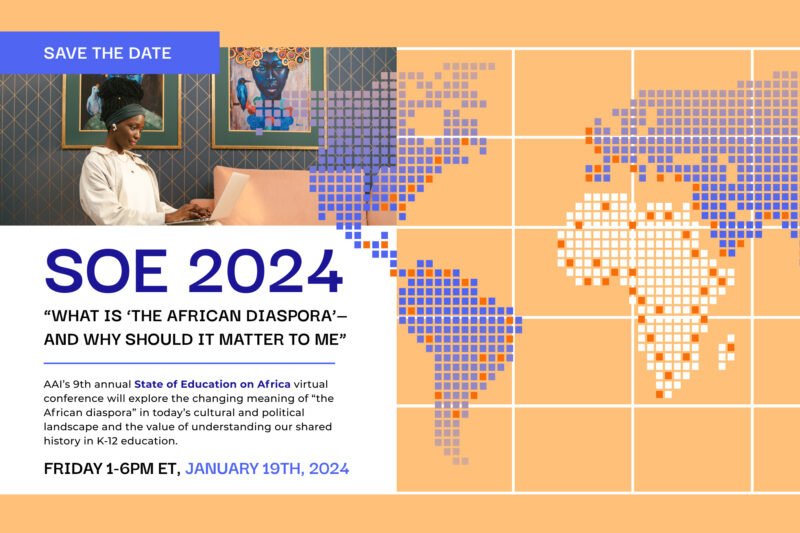Developing a Strong Data Culture
Nonprofit organizations can make decisions that matter by leveraging data
By Melissa Howell
For monitoring program outcomes, nonprofit organizations do not necessarily need a formal evaluation to assess the effectiveness and relevancy of their programs. Yet an evaluation process and program data can offer tremendous benefits: most will know where to focus their efforts or be equipped with sufficient information to implement transformative changes that can lead to successful capacity-building.
The Map
 As a professional focused on program and strategy design, I often reflect on the mission and vision of The Africa-America Institute and use the organization’s program objectives as a recalibration tool to guide our work. Monitoring and evaluation play critical roles in creating a roadmap for any initiative. An evaluation can do more than inform whether your program is heading in the right direction.
As a professional focused on program and strategy design, I often reflect on the mission and vision of The Africa-America Institute and use the organization’s program objectives as a recalibration tool to guide our work. Monitoring and evaluation play critical roles in creating a roadmap for any initiative. An evaluation can do more than inform whether your program is heading in the right direction.
Data is Key to Decision-Making
With the right monitoring and evaluation tools, your data gathering process becomes much more than a collection of interesting charts and quotes. The right data is the key to unlocking the truth behind whether your work is truly effective and what changes are happening as a result.
Like many organizations, AAI measures the Reactions, Learnings, Behaviors and Results of our programs as outlined by the industry standard’s Kirkpatrick Model. From this process, we can determine whether the right set of strategies are in place and program participants and organizations are taken through the right set of experiences to increase their capacity. We must ask the right questions to collect informative data to make important decisions about the structure of our programs. But the process doesn’t stop there.
We must continually assess the questions and responses from evaluations to capture the full story from our data. By questioning our questions, the responses help us assess whether we are gathering the appropriate information. The May 2015 issue of the Harvard Business Review was dedicated to the topic of better decision-making. The article presented varied approaches that highlighted the blind-spots and sometimes hidden biases that often detour our ability to make decisions for the desired change. The confirmation bias, for example, can lead us on a path in which we are “selectively building and interpreting experiences” in ways that supports and confirms already established beliefs, like in the efficacy of an approach or program. By focusing too heavily on the successes of our programs, we might not pay enough attention to the process leading up to that outcome, overlooking glaring roadblocks, “information deserts” or missed opportunities.
Making Decisions that Matter
 Collectively, data will show us what direction to take to accelerate progress on our programming. For example: If we shift our strategy in a month will the impact be the same if we make the same directional turn in a year from now. Having the right data is key.
Collectively, data will show us what direction to take to accelerate progress on our programming. For example: If we shift our strategy in a month will the impact be the same if we make the same directional turn in a year from now. Having the right data is key.
This past June, members of the AAI team participated in the Data on Purpose conference, sponsored by the Stanford Social Innovation Review, in California. The conference brought together practitioners, data experts and academics to examine ways organizations can leverage data intentionally for social change. Our participation allowed us to explore ways to create an improved data culture within our organization. In turn, we believe, our programs will strengthen the leadership capacity of individuals, who will also respect the value of the analysis and culture of data within their own organizations.
We learned that biases often creep into the most extensive of data analysis processes. We aim to explore more ways to incorporate community participation in all stages of our process – identification, gathering, analyzing and reporting. AAI is planning to organize a discussion on this topic in late 2015 to learn and share more about the importance and value it brings to the data and knowledge production cycle. We hope you’ll join us for this important conversation. In the meantime, let us know how your organization is developing a strong data culture.
Melissa Howell serves as The Africa-America Institute’s Program Officer, managing the Transformational Leadership Program (TLP), which provides leadership training to NGO leaders in partnership with African colleges and universities.
Resources:
The Kirkpatrick Model, http://www.kirkpatrickpartners.com/OurPhilosophy/TheKirkpatrickModel/tabid/302/Default.aspx. Accessed June 19, 2015.
Situated Learning, http://en.wikipedia.org/wiki/Situated_learning. Accessed July 8, 2015.
Outsmart Your Own Biases, Harvard Business Review. May 2015.
Fooled by Experience, Harvard Business Review. May 2015



